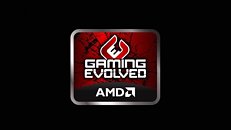Friday, June 15th 2018

AMD Announces The Division 2, Resident Evil 2 Remake, Strange Brigade Partnerships
AMD at E3 2018 announced its commitment to powering the ultimate gaming experiences via partnerships with game publishers and developers, to bring fantastic 3D realms to life. In line with AMD's cooperation with Ubisoft in Far Cry 5, which saw the usage of AMD Vega-centric technologies (such as FP16 Compute on some water and lighting scenarios, Rapid Packed Math, and Shader Intrinsics) across the title, the company has announced it will help Ubisoft deliver a DX12-driven experience with The Division 2. It remains to be seen if more technologies than were used in Far Cry 5 will be in play here.
Alongside its Ubisoft/The Division 2 announcement, AMD also established partnerships with Capcom, for the upcoming Resident Evil 2 remake, and with Rebellion for their Strange Brigade title. The partnership with Capcom is a novel one, but AMD had already worked with Rebellion on Sniper Elite 4, for some stellar CrossFire performance. These partnerships join AMD's long-standing, long-reaching partnership with Bethesda Softworks, in order to fight NVIDIA's entrenchment with the videogame industry via its GameWorks program.
Alongside its Ubisoft/The Division 2 announcement, AMD also established partnerships with Capcom, for the upcoming Resident Evil 2 remake, and with Rebellion for their Strange Brigade title. The partnership with Capcom is a novel one, but AMD had already worked with Rebellion on Sniper Elite 4, for some stellar CrossFire performance. These partnerships join AMD's long-standing, long-reaching partnership with Bethesda Softworks, in order to fight NVIDIA's entrenchment with the videogame industry via its GameWorks program.




6 Comments on AMD Announces The Division 2, Resident Evil 2 Remake, Strange Brigade Partnerships
My view on this is that if Division2 is only DX12, nVidia will need more raw-compute power to beat similarly priced AMD GPUs than their Pascal or older gens.
*Drools*....:clap:
"Yes, if they do not destroy performance".
Even worst is when those "in-game" benchmarks are devised to promote only such exclusive add-in API modules or technologies as the "standard", and especially if they place a burden on other vendor hardware and cannot be "turned-off" in the benchmark and or game.